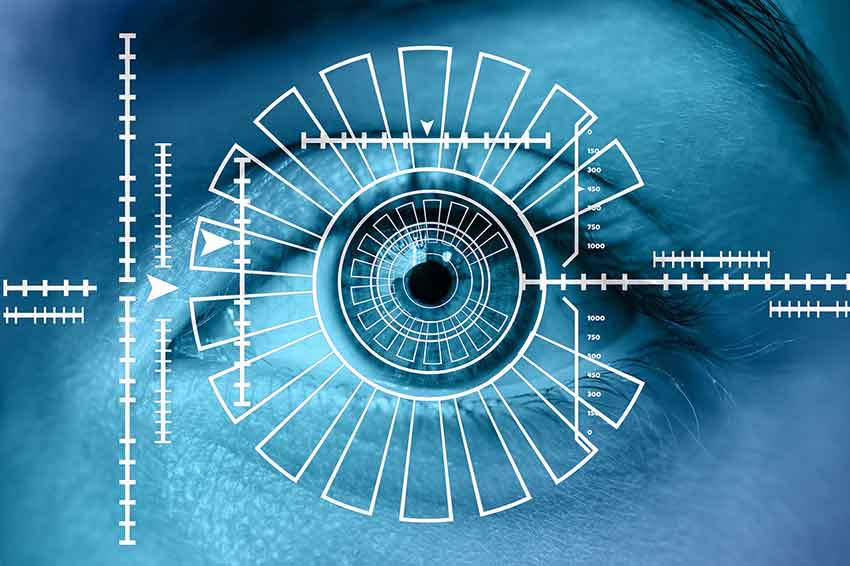Show:
Future of Biometric – The Pros and Cons of Using Biometric Technology for Startups
Just think about how many access codes and keys you have to remember. The PIN for your credit card, for your phone(s), alphanumeric passwords for your accounts – all of these codes you have to memorize to function on a daily basis.
Annoying, isn’t it?
Biometric technology has been designed to curb these flaws, and startups should take notice. Is biometric that revolutionary or are there things your startup should be wary about? Let’s find out.

A major boost in convenience
Proponents of biometric technology often cite convenience as the most important benefit of this solution. You won’t have to remember any long keys, passwords or PIN because you are the one who is the access code.
Using only your body, you can gain access to any section or data you have clearance too. Instead of memorizing numbers and words, you can use one of these things to gain the access you wanted:
- Fingerprint
- Facial recognition
- Voice recognition
- Iris scanning
- Vein and palm recognition (Introduced by the LG G8 smartphone)
The bottom line is – you have all the data on you, at all times. If you’re operating a database and your employees want to access it, they will do so in an easy manner. You will also avoid any situations involving a forgotten password or denied access because of too many password-related mistakes. But is the convenience worth it?

Not as secure as we thought
Just because passwords are easily found out by hackers doesn’t mean they’re obsolete. One of the main reasons why they persist to exist is because they can have no connection to you whatsoever.
A lot of startups are currently trying out biometric identification systems for access clearance and use of data. However, experiments have shown one glaring flaw – this form of biometric data can be hacked even more easily.
How, exactly? A Californian startup conducted an interesting test. They created a random set of new articles using college paper and top essay writing services stored it in a secluded part of their database. Afterwards, they urged their ethical hacking team to try and steal the data.
Surprisingly, they managed to do it because the computer software was so sure it was the actual person trying to enter that it posed no obstacle whatsoever. But can this security issue be cleared so that your startup can use biometric technology freely?
Using cloud computing as a solution
One of the biggest pros of biometric technology is that it’s still malleable. We may have the resources to scan our irises and fingerprints, but the majority of the tech is still in its infancy. To tackle security problems and data breaches, several startups have started experimenting with cloud-based biometric services.
This is perhaps the most important innovation of the last few years, according to college essay writers knowledge. Biometric technology has all the advantages, while avoiding the usual identity theft problems.
If you’re using biometric data to identify your employees and to grant access, you should opt for cloud-based data storage. There is no centralized server that hackers can assault, making the data and credentials that much safer.

An ethical issue?
The widespread use of biometric technology for startups has been halted by ethical issues as well. While the tech itself is incredibly close to what we see in sci-fi movies, there are still important ethical problems we need to address. How can you make an employee give you his biometric data? What right do you have to ask someone for something that personal?
Philosophers and tech experts have weighed in on the problem. They all agree that startups can benefit from biometric technology, but also that it’s an invasion of the deepest layer of our privacy. Think about it – if someone breaches your password, you can create a random new one that nobody will ever think of.
What if someone manages to gain access to important data using one of your employees’ biometric data? They cannot change the way their iris looks, nor their fingerprints.
Integration with other technologies
In accordance with what we said earlier about biometric still being fairly young, we cannot forget its integration capabilities. Several companies have suggested decentralized biometric blockchain authentication. The main problem that lingers is data storage and the transfer of access keys through decentralized clients.
Startups are also exploring serverless cloud computing for better power management and cutting costs. This nevertheless interesting concept gives unlimited capabilities for startups to store employee records, department specific-information and much more. It’s still early to tell what’s the best integration option.
Concluding thoughts
Biometric technology is a cutting-edge solution that can help startups with easier access, convenience and security. Any existing issues are mostly due to the fact that biometric is very young as a technology. We fully expect all the issues to be resolved in the next 5-7 years.
About the author:
Piter Bunn is marketing specialist and blogger from Manchester, UK. When he has a minute, he loves to share a few of her thoughts about marketing, writing and blogging with you. Currently, he is working as a marketer at best essay writers uk and best dissertation service

 Return to Previous Page
Return to Previous Page








